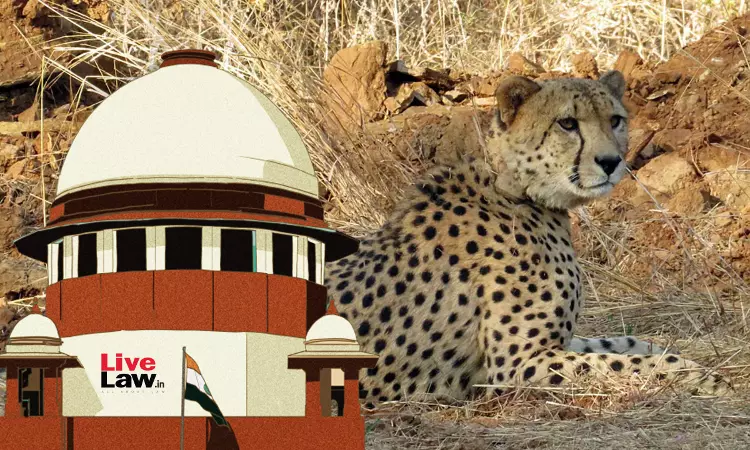Kuno Cheetah Deaths Anticipated; 50% Of Translocated Animals Dying Not Alarming : Centre Tells Supreme Court
Awstika Das
20 July 2023 1:13 PM IST

Next Story
20 July 2023 1:13 PM IST
Less than a week after the death of the eight cheetah translocated to Madhya Pradesh’s Kuno National Park from the African continent, the Centre told the Supreme Court of India on Thursday that the death of fifty percent of the cheetahs was not ‘alarming’ and actually anticipated. Responding to a query by the bench regarding the death of almost forty percent of the...
